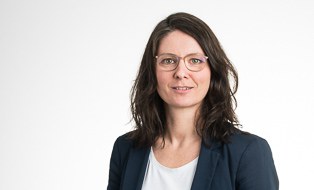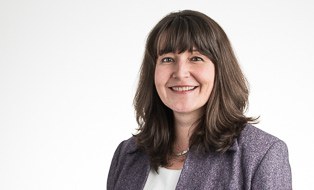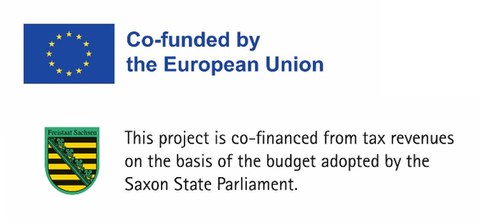Directive "University and Research" - Call for Junior Research Groups 2025
As part of the ESF Plus "University and Research" guideline of the Saxon State Ministry of Science, Culture and Tourism (SMWK), junior research groups are to be funded for a period of up to three years from November 1, 2025.
The aim of the funding is to exploit the individual educational potential, especially of women, by expanding their skills with regard to a stable, green, sustainable and digital economy in the Free State of Saxony in order to improve their chances of entering the Saxon science and economy. The conception and implementation of the projects must be designed in such a way that 50 percent women and 50 percent men are reached as participants during the funding period. Female early career researchers are addressed both in a targeted manner and by establishing projects in subject areas with a higher proportion of women. Junior research groups are open to all topics.
Through joint research work, the young researchers are to be empowered with regard to a stable, green, sustainable and digital economy in the Free State of Saxony as well as to increase the transfer of knowledge and technology and to build networks between Saxon universities and the economy as well as for teaching.
Duration: from 01.11.2025 until 31.10.2028 at the latest
Amount of the grant:
The funding amounts to 90 percent of eligible expenditure/costs. Expenditure and costs for the university's own core-financed staff and staff working on the project can be counted as own contribution. Co-financing is also possible in "cash" from free funds (own funds).
Based on the budget and distribution key among the universities in the transition region, TU Dresden expects a maximum of five junior research groups in this call.
Depending on the number of applications received, we reserve the right to set a minimum number of points in the course of the internal university evaluation.
Type of grant/financing:
Project funding in the form of partial funding.
This call for proposals is subject to the availability of funds (budget proviso). There is no entitlement to funding. At the beginning of 2025, there will be provisional budget management for several months, so that provisional budget management will be carried out in accordance with Article 98 of the Saxon Constitution for the period until the 2025/2026 budget is adopted by the budget legislator.
Requirements and framework conditions for early career researchers:
Junior research groups consist of at least three junior researchers. With a view to the continued existence of the junior research groups in the event of staff departures, the SMWK recommends the formation of junior research groups of at least four junior researchers per university.
Junior researchers within the meaning of these guidelines are natural persons who have completed their studies or doctorate no more than six years before submitting the project proposal (deadline 01.04.2025) for funding the junior research group or who have submitted the application to open the doctoral procedure by submitting the dissertation. This period is extended by two years for each supervised child born between the completion and submission of the project proposal.
In addition to their work in the junior research group, the junior researchers develop their individual potential, including their knowledge of gender equality. For this purpose, the qualification areas of gender equality knowledge, teaching, social skills and project management are available for selection. Participation in the qualification area of gender equality knowledge is mandatory. Achievements must be made in at least one other of the above-mentioned areas.
Natural persons who have previously received doctoral funding from the ESF/ESF Plus for more than 36 months or who were previously employed for more than 36 months as early career researchers in an ESF/ESF Plus-funded early career researcher, early career researcher or REACT research group are only eligible for funding if they are working as postdoctoral researchers. The doctoral project must already have been completed for these persons or the application to initiate the doctoral procedure must have been submitted with the dissertation. Sentence 1 does not apply if the natural person was working as a Student Assistant or Research Assistant.
Junior researchers must be employed for the entire duration of the project (at least six months) with a constant job share of at least 50%.
During parental leave and periods of maternity leave, additional junior researchers may be employed in the project if they have been employed in the project for at least six months.
Requirements and framework conditions for the junior research group:
Junior research groups are projects of a single or several cooperating universities, which must consist of at least three junior researchers. Cooperation with non-university research institutions in the Free State of Saxony is permitted.
The results of the funded research projects must be publicly accessible for research and teaching in the Free State of Saxony.
In junior research groups with up to five junior researchers, one researcher over the age of 54 may work; in junior research groups with more than five junior researchers, two researchers over the age of 54 may work.
In accordance with the guidelines, the selection procedure particularly recognizes projects that:
a. Conduct practice-oriented/interdisciplinary research,
b. Include skills acquisition in the field of the European Green Deal,
c. Support the acquisition of skills in the field of digitalization,
d. are realized in the STEM or AI field mainly or entirely by women,
e. are located in the cultural sector.
Eligible expenditure:
The following expenditure/costs are eligible in accordance with the current rules of the administrative authority on eligible expenditure and costs (so-called FFAK).
Personnel expenses:
Personnel expenses of up to twelve full-time equivalents per junior research group are eligible for funding in the form of job funding for junior researchers and researchers over 54 years of age, provided they are employed for the project.
For other personnel - in particular personnel for the provision of own contributions, auxiliary staff or other support staff - personnel expenses are eligible for funding as a person-related lump sum based on an individually determined hourly rate and the actual hours worked.
Other expenses:
Expenses for project-related travel costs, instruments and equipment, for consumables and working materials, publications, administration and other operating expenses are funded as a lump sum by applying a percentage based on the eligible personnel expenses (so-called "residual cost lump sum") amounting to 16 percent. Vice-Rector Research 2/2023 applies accordingly.
Expenditure and costs for the qualification services of junior researchers are not eligible for funding.
Recipients of funding are higher education institutions as defined in the § 1 par. 1 of the “Freedom of Institutions of Higher Education in the Free State of Saxony Act”.
Internal university assessment - stage 1:
If you are interested in applying, please contact the EPC promptly by e-mail or telephone (see contacts below) to beregistered as an applicant.
Please submit via e-mail by 10.02.2025 to with the subject "ESF PLUS NFG 2025":
- Project proposal stage 1 according to PDF template (in German)
- Calculation template
Project proposals not submitted by the deadline cannot be considered for selection.
In the period from 11.02.2025 to 28.02.2025, the internal university evaluation and prioritization will take place.
Submission of project proposal SAB - stage 2:
After completion of the internal university evaluation, the selected project proposals must be expanded to 15 pages and qualified for submission to the Sächsische Aufbaubank (SAB) in the period from 01.03.2025 to 31.03.2025 at the latest (application deadline 01.04.2025).
The EPC supports the applicants in this process and submits the project proposals on time via the TU Dresden account in the funding portal of the Sächsische Aufbaubank. Please ensure that contact persons are available during this time.
Project proposals for collaborative projects with other universities must be submitted in the prioritization process by each participating university and co-signed by the partners.
Submission of full proposal SAB - stage 3:
The SAB and SMWK then select eligible project proposals in competition with proposals from the other Saxon universities in the so-called transition region. For the selected projects, the eligible applicants will be invited by the SAB to submit the full application, planned from June 2025.
The selected projects will be approved after a budget law for 2025/2026 has come into force and the necessary budget funds have been made available to the SMWK by the Saxon State Ministry of Finance (SMF).
Further information on how to apply can be found under "Further links/forms".
*all documents only available in German
Contact at the EPC:
 © TU Dresden
© TU Dresden
Head of Unit "Structural Funds Saxony"
NameMr Dominique Philipp Brinke
ESF Plus, Federal ESF Plus, ERDF/JTF
Send encrypted email via the SecureMail portal (for TUD external users only).
Visiting address:
FAL Falkenbrunnen BT-A Würzburger Straße 35
01187 Dresden
 © TU Dresden
© TU Dresden
Deputy Head of Unit / Project Manager
NameMs Susan Kasten
ESF Plus, Federal ESF Plus, ERDF/JTF
Send encrypted email via the SecureMail portal (for TUD external users only).
Visiting address:
FAL Falkenbrunnen BT-A Würzburger Straße 35
01187 Dresden
 © TU Dresden
© TU Dresden
Project Manager
NameMs Jana Kolba
ESF, ERDF/JTF
Send encrypted email via the SecureMail portal (for TUD external users only).
Visiting address:
FAL Falkenbrunnen BT-A Würzburger Straße 35
01187 Dresden

